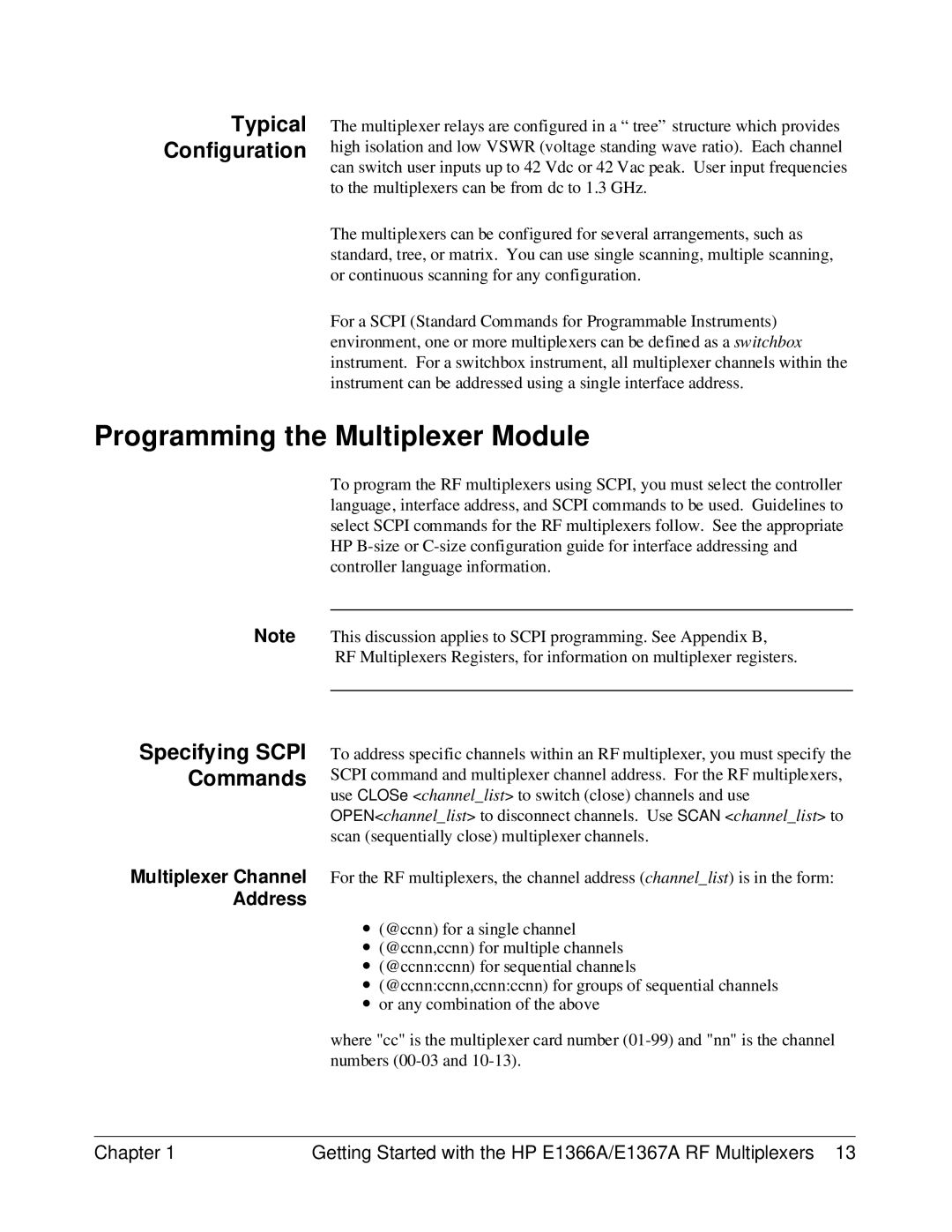
Typical Configuration
The multiplexer relays are configured in a “ tree” structure which provides high isolation and low VSWR (voltage standing wave ratio). Each channel can switch user inputs up to 42 Vdc or 42 Vac peak. User input frequencies to the multiplexers can be from dc to 1.3 GHz.
The multiplexers can be configured for several arrangements, such as standard, tree, or matrix. You can use single scanning, multiple scanning, or continuous scanning for any configuration.
For a SCPI (Standard Commands for Programmable Instruments) environment, one or more multiplexers can be defined as a switchbox instrument. For a switchbox instrument, all multiplexer channels within the instrument can be addressed using a single interface address.
Programming the Multiplexer Module
Note
Specifying SCPI Commands
To program the RF multiplexers using SCPI, you must select the controller language, interface address, and SCPI commands to be used. Guidelines to select SCPI commands for the RF multiplexers follow. See the appropriate HP
This discussion applies to SCPI programming. See Appendix B,
RF Multiplexers Registers, for information on multiplexer registers.
To address specific channels within an RF multiplexer, you must specify the SCPI command and multiplexer channel address. For the RF multiplexers, use CLOSe <channel_list> to switch (close) channels and use OPEN<channel_list> to disconnect channels. Use SCAN <channel_list> to scan (sequentially close) multiplexer channels.
Multiplexer Channel For the RF multiplexers, the channel address (channel_list) is in the form:
Address
∙(@ccnn) for a single channel
∙(@ccnn,ccnn) for multiple channels
∙(@ccnn:ccnn) for sequential channels
∙(@ccnn:ccnn,ccnn:ccnn) for groups of sequential channels
∙or any combination of the above
where "cc" is the multiplexer card number
Chapter 1 | Getting Started with the HP E1366A/E1367A RF Multiplexers 13 |
